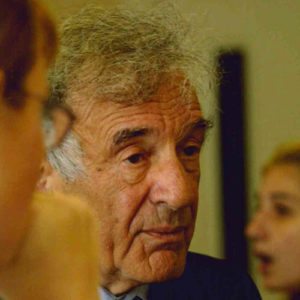Memories, Madness and Desire
In a college course, I was given the advice, “Life is not made up of years, but of moments.” That course always resonated. I referred to the same advice during my oldest brother’s wedding ceremony. I was his co-best man. I wove it into my drunken speech. It was good enough to impress the bride’s father.
I always get uncomfortable in churches. Perhaps the fear of the unknown. Am I not worthy enough? Who really is watching? Why? What does it matter? Religion, to me, has always been more of a routine, if anything.
Why did it take 20 years to finally begin to focus in school? What clicked? Was it in the approach? The snacks? The literature? What about that room changed people? It wasn’t lined with yellow wallpaper. It was intelligent, yet soft. Caring and focused. It felt safe.
He listened.
He told us, “Books find you when the time is right.” I reread The Forgotten years later, and it made me cry. When my publisher returned my personal copy I had shared, I found out he had passed the next day. Was it a sign or sheer coincidence?
Dr. Wiesel lived a long, purposeful life and survived the horror. He smiled and told jokes. Will he remember my name? We all have our doubts. People forget things all the time. Do we take any memories with us when our bodies pass?
We read the Bible to learn about power. It’s only human to want to learn. Does God ever say sorry in real life? When do we realize who we are? What is infinite knowledge, a set of rules or a broad perspective on life? If you are making money on the streets of a holy land, does that make you a beggar or a preacher? The greatest stories in life, both fiction and nonfiction, are the celebrated quests for identity. A sense of humor can save a tortured soul, but why does beauty create such unconquerable walls?
Sometimes the mysteries in life are the things we see every day but take for granted. Feeling safe. Feeling loved. Feeling valued. But what is the real difference between wisdom and knowledge? Dr. Wiesel believed wisdom was the soul of knowledge. Having gratitude is a vital characteristic to being human. I am grateful I was able to study with Elie Wiesel.
Dr. Wiesel demanded respect, and our group had tremendous amounts to read between classes, yet everyone was prepared and engaged. We connected. A good teacher is able to connect with the class and create wonder and awe.
Whom will you meet next in your journey? Who will be kind enough to share love, respect and their memories? Who will help create new ones? What will they say about you? That will be the next miracle.
Thank you, Dr. Wiesel.
Peace, indeed.
—Joe Trojnor-Barron ’09


